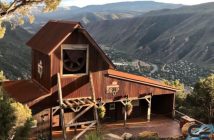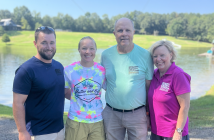Employee turnover, which has been rising in the Covid era, costs employers valuable talent as well as the time, energy, and money to find and train new staff. To keep valued staff in place, many businesses offer upward mobility, good pay, and a chance for more education. All good, but there’s another way to keep seasonal staff happy and coming back year to year: Put an emphasis on creating a fun work environment where employees feel they are working among friends.
Make It Fun
The start of the season, when you are bringing in new hires, is a great time to show staff how awesome your workplace is. At ZipZone Outdoor Adventures in Columbus, Ohio, we try to incorporate fun activities into our training to establish that this is a lighthearted work environment. Icebreakers and name games introduced with the right pizzazz can get people loosened up and enjoying their time at work. If you are rolling your eyes at this suggestion, I can tell you after 20-plus years of training staff that icebreakers and name games work—so long as you make it fun. These activities also create an opening for new staff to start bonding.
Party time. It is important to help the returning staff and new staff get to know each other. This will help to form a cohesive team and a welcoming environment where people want to come to work. At ZipZone, we make use of the resources around us to host regular staff get-togethers.
ZipZone is located on the grounds of a summer camp, which has a pool onsite. We’ve found the pool to be a perfect location for staff outings, and we usually schedule a few pool parties each summer. Staff are encouraged to bring food, and often management orders a few pizzas as well. The pool parties are a low-key, casual way for staff to mingle and get to know each other—and a great perk on a hot day.
Not everyone has a pool onsite, of course, but a casual get-together at your operation, a local park, or a nearby camp site with a bonfire, a few games, and some free food can go a long way toward helping staff get comfortable around each other. Many locations will have an end-of-year party to celebrate a good season and the hard work of the staff members, too. At Raven’s Rim Zip Line in Moab, Utah, owner Casey Bynum holds an end-of-the-year party each season at a local restaurant or bar. “It is great to see everyone dressed up and to get to reminisce about the year and hear everyone’s off-season plans,” he says. Ending the season on a high note, with a celebration, leaves departing seasonal staff with a positive last impression and can help with retention year over year.
At Ecozip Adventures on Waiheke Island in New Zealand, owner Gavin Oliver shows his dedication to his core staff in many ways, including an end-of-the-season incentive trip. Over the years, he and his core team have visited a few different destinations. Oliver says that creating this fun experience for the staff shows them “how important they are, and their value to the company.”
The favorite destination so far has been Rotorua on New Zealand’s North Island, about 150 miles from Ecozip, where the team enjoyed the hot springs and were also able to experience an aerial adventure at Rotorua Canopy Tours. This sparked much conversation, which Oliver dubs the “idea factory.” The casual atmosphere creates a great opportunity for staff members to share ideas in a stress-free environment.
Make the most of meetings. You likely have times when your staff gather for work, like staff meetings—kicking these up a bit can transform them from a drag to a fun perk of the job. Bynum likes to have his staff meetings around the campfire with some pizza and adult beverages for those of age. He says there are benefits to making staff meetings enjoyable: If it is going to be a good time, staff are more likely to show up, and if they have a drink and some food, it makes it easier to be quiet and pay attention when you are talking.
At ZipZone we have two all-staff meetings each year: one at the start of the season called “Safety Day,” where we regroup for the year and talk about what went well last year and our opportunities for growth, and one at the end of the season.
At “Safety Day,” we often play games and provide lunch; this is a great time for people to socialize and catch up from the off-season. Then, at the end of the summer, we serve dinner and have a campfire at the staff meeting. Staff look forward to the meeting and make it a priority to attend for some free food and to hang out with their friends. In a different situation they might complain about having to stay late or drive to the site for a meeting, but when you add a fun activity and a meal, it completely changes their perspective.
Competitions can be another fun way to energize employees. At Tree Frog Canopy Tours in Glenmont, Ohio, owner and general manager Madison Trout organizes a “Tree Frog Olympics” each year. Guides are separated into teams weeks in advance so they can create some camaraderie with their group and come up with a team name. Teams often get really into the event, designing matching shirts and coordinating outfits, says Trout. On the day of the event, the tour closes early to gear up for the big competition, where teams compete in traditional yard games like dizzy bat, three-legged races, slip n’ slide, etc.
The buildup to the games promotes bonding, and a successful Tree Frog Olympics gives the guides something to share with friends about their fun workplace, which can help with word-of-mouth recruitment.
Timing is important. “We like to have our Olympics at the end of the summer right before people go back to school. This way, summer staff can end on a high note and our full-season staff get a nice change of pace to boost morale,” says Trout.
Competitions on a smaller scale. At ZipZone, we have an ongoing competition related to online reviews. We have a monthly prize drawing, and staff members get one ticket for the raffle for each positive online review in which they are mentioned by name. Prizes are often gift cards of $50 or more, and guides enjoy the bragging rights as well as the reward. Staff are allowed to ask guests for online reviews but are encouraged not to mention it too many times to avoid becoming pushy. This competition is a win/win for us, as it drives positive reviews and incentivizes the staff to deliver a quality experience.
Brainstorming and Implementation
What staff want. When you are trying to figure out something fun or rewarding for the staff members at your site, Bynum recommends that operators find out what their employees will actually value as an incentive or reward. For example, at Raven’s Rim, many of the staff members live the “van life” and as such appreciate creature comforts like a shower or a place to do laundry. So, Bynum provides both as perks of the job, which makes Raven’s Rim a great place to work for those employees.
Consult your staff. You can also invite staff to bring ideas to you (and listen to them when they do). When the suggestion for a staff perk or outing comes directly from an employee and you act on it, that employee will take ownership over the idea and will feel heard and appreciated when it is acted upon and comes to fruition.
It’s also key to separate work from play, and remind staff that there’s a time for each. At ZipZone, we talk about how we offer our program for people to enjoy themselves and grow. We are not here to goof around and have fun, we get our fun from our guests having fun. This means we don’t tolerate staff pushing the boundaries of safety, doing things outside of the norm, sneaking into the park after hours, etc. All of these are things that lead to accidents, and we discuss this in training.
During training we talk about accidents in the industry and when they happen. We tell them if you want to do something outside of the norm, like climb after hours, have a play time for staff, whatever, let us know and we will arrange it. We don’t want anyone to go rogue and do it on their own.
Delegate. One advantage of letting employees come up with their own ideas is that they then do the leg work to make it happen. When a few staff members at ZipZone approached me to propose an onsite staff campout, my quick response was, “Go for it!” I assigned a supervisor to the event, let the employees take the lead, and offered guidance as necessary along the way.
If you are the manager or owner of a site, don’t think you need to do all of the planning for a staff event. You can put someone in charge of organizing it, while still retaining control over key details like the date and logistical considerations. For example, if an event is at your site, it is important to make sure everyone knows who oversees which tasks the day of the event. That way you don’t end up with open gates or trash left behind. With a lot of employees at the event, they can often all think it is someone else’s responsibility.
Additionally, as an owner or manager, it is important to know your role in staff events. Depending on your relationship with the staff, you might be a participant in or just make an appearance at the event. Remember, the event is for the staff, so you shouldn’t be intrusive. You should give the staff some autonomy, which helps them to feel trusted and appreciated.
For example, last year, our staff were really excited about organizing a staff night climb in our adventure park. We had 20 staff show up for the event, and they had a blast. I made a brief surprise visit while everyone was climbing, and it was great to see everyone enjoying themselves. I couldn’t stay for the whole affair because I have kids to care for, but I wanted to stop by and say hi. Also, I wanted to show the staff they had autonomy, and that I trusted them to run the program on their own. It was so well executed it might become an annual event.
Listen. Whatever event or competition you choose to boost the morale of your staff, I recommended letting them weigh in and have a voice. It is a great way to show that you care about their ideas, and also takes the load off of management to be the party planner in addition to the other job titles we often carry.
You must care about your staff if you expect them to care about your park or program (and come back next season). Your staff play a large role in helping your guests have fun; there might be no better way for you to show your staff that you care about them than to help them have some fun, too.






